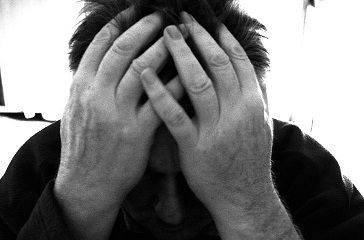#Stress – Distress & Eustress#
Stress can be both positive (eustress) or negative (distress), physical or emotional, internal or external.


Certain physical or emotional stress can be good for us, whilst others can be quite damaging leading to health issues. Healthy physical stress results as we exercise (walking, swimming, running, stretching or lifting weights) as it develops a healthier and stronger body.
Unhealthy physical stress can be a result of us defending ourselves against an attacker, car accidents or breaking a bone.
Healthy emotional stress is that sense of urgency and determination to get something done or to do well. It makes us focused and determined to achieve certain outcomes whereas, unhealthy emotional stress such as feelings of overwhelm at school or work, financial difficulties or a relationship breakup which can result in a breakdown of the immune system, making you more susceptible to illness and affects your ability to think clearly, solve problems, affects your mood and ultimate can filter into other areas of your life.
Research has proven that we all respond in different ways to different kinds of stress. Healthy stress, otherwise known as Eustress, causes your body to release a “happy hormone” called endorphins; whereas Distress causes the heart to race, blood vessels constrict and breathing becomes shallow which can result in headaches, light-headedness and insomnia.
Chronic stress can result in sweating, shaking, clammy hands, anxiety, confusion and ultimately to challenges such as depression or worse. Distress is usually a result of something perceived as being outside of our control or ability to handle effectively.
Since excitement and anxiety, to the brain, feels the same. It is up to us to determine if the stress we are feeling is Distress or Eustress. If you are about to give a speech in front of a group of people, you may feel distressed, but the good news is that you can easily convince yourself that you are feeling excitement and the brain will accept it which will enable you to move forward, thus changing Distress to Eustress. This of course, will not work with all situations we perceive as distress and sometimes, we simply need to be sensible enough to seek out the help of a professional when we feel distressed over long periods of time.
Obtaining help from a psychologist is extremely useful as they will notice those things we are overlooking and assist you in focusing your energies and efforts on the source of the problem and not just the symptoms, as you would on your own. They can assist with external sources of your stress by giving you a view of the bigger picture and assist you with internal sources of your stress such as thoughts, feelings and habitual behaviors created through repetitive thought patterns which you have not noticed or have noticed but don’t know how to work through. They can give you insights such as how procrastination can be a result of some real or imagined fear and what you can do about it.
Ultimately, seeking the assistance of a professional therapist could result in a partnership that not only leads to a healthier and happier life, but achievement too. Personally, I think that the psychologist is terribly undermined, under-utilized and under-valued.

There are many things you can do to help manage everyday stress, some of which I will outline below:
- Stop burying your problems in caffeinated and alcoholic drinks. This could help you in the moment but results in even bigger problems later on.
- Manage your time the best you can. Write down all that you need to do the following day before going to bed. Prioritize them and you can even allocate the amount of time you are willing to spend on each task and even break down the bigger tasks into smaller steps. Focus on only one task at a time and cross things off your list the following day as you complete them. Don’t be a perfectionist or expect yourself to achieve everything on the list in the time you’ve allocated – just use those times as a guide. We are naturally unrealistic in terms of time and what we would like to achieve in it. Just put those things you never achieved onto tomorrows list, prioritize and try again, allocating more time to the tasks you were unable to complete.
- Ask for help when necessary. Don’t try to do everything yourself.
- Take regular short walks and do some form of exercise each day.
- Begin meditation and/or breathing exercises daily. Join a Yoga group.
- Go to bed and get up on the mornings at consistent times each day, ensuring you get 8-10 hours sleep each night depending on what your own body needs.
If doing the obvious listed above does not reduce your levels of stress, then you must have a chat with a professional. Stress that remains for long periods of time (weeks or months) causes high blood pressure, breaks down the immune system, causes depression, fatigue and anxiety and could lead to heart disease along with many other health issues.
It has been proven that those who undergo surgery when under a lot of stress, take much longer to heal than those who have the same surgery whilst under mild stress.
Your body will let you know when you are under too much stress and you should pay attention.
Some signs could include:
- An inability to concentrate on or complete tasks
- Constant headaches
- Inability to sleep or maintain sleep for a reasonable period of time
- Getting sick often
- A sense of irritability, frustration, anxiety, anger or fear
- A change in appetite
- Muscular aches and pains

For an understanding of what is happens inside your body and brain when under chronic stress, look for the article entitled: “Chronic Stress” on SteemIt (https://steemit.com/@valeriem)
If you found anything useful, please do not forget to support, comment and vote up.
Images: from Google Images